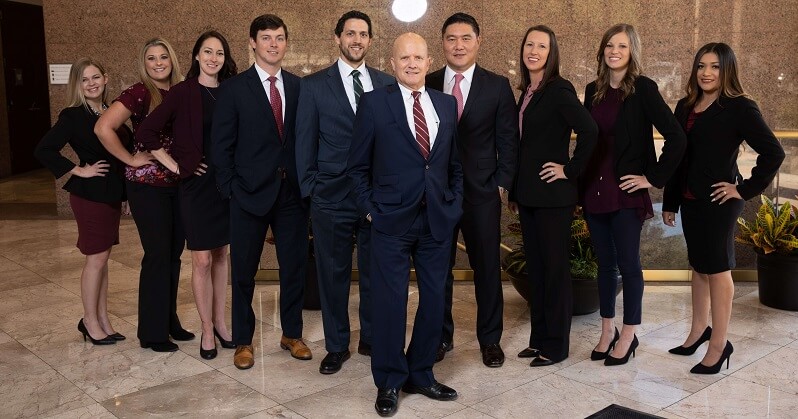Dallas Misdemeanor Defense Lawyer
Dallas Misdemeanor Defense Lawyer: Will You Go To Prison For A Misdemeanor?
Dallas misdemeanor defense lawyer is one person who can tell you the possible consequences of your misdemeanor. About 25% of the Texas prison population is there because of misdemeanor charges. About 400,000 American children have a parent in jail. More than 50% of Americans have someone in their extended family that has been incarcerated. With this frequency of incarceration, it is understandable that people often ask “Will I Go to Prison or To Jail for A Misdemeanor?”
In all misdemeanor arrests, a Dallas misdemeanor defense lawyer should be consulted. Misdemeanors are offenses in Texas that carry a tariff of up to 12 months in municipal or county jail if convicted. Misdemeanor charges remain on a person’s criminal record for the rest of their life. The expunction method can be used to get rid of them, and order of nondisclosure can keep them sealed.
Do misdemeanors get expunged from your record after seven years? In Texas, misdemeanor convictions remain on an individual’s record for the remainder of their life.

Types Of Offense
In Texas, offenses may result in an infraction, a misdemeanor, or a felony depending on the severity of the conduct.
Infractions
Infractions are criminal violations that are not serious enough to warrant detention. They do not result in the imposition of prison time. Disturbing the peace during a party with loud music, jaywalking across the street, and motor vehicle offenses such as failure to halt at a stop sign are all examples. Infractions are only penalized with monetary fines in the US.
Misdemeanors
A misdemeanor is the second-lowest level of criminal responsibility. Most misdemeanors are punishable by penalties, while others are punishable by imprisonment. Financial penalties and prison time can be combined in some cases, and attorneys will normally push for one or the other depending on what is in the client’s best interests. Misdemeanors are subject to penalties that are limited in scope, with a maximum fine of $4,000 for a misdemeanor and a jail sentence not exceeding one year for a misdemeanor that does not exceed one year. Aside from that, any imprisonment for a misdemeanor will be limited to a local setting, such as a county jail or house arrest, rather than being sent to the Texas state prison.
Felonies
Felonies are sever offenses that, if the individual is judged to be guilty, would result in the perpetrator being imprisoned in a state prison. For criminal convictions, the maximum term is more than 12 months in jail and can go as high as life without parole or possibly the death penalty.
Misdemeanor Classifications
Types Of Misdemeanors
A Dallas misdemeanor defense lawyer can help you prepare your defense if you are charged with a misdemeanor. Here is a quick rundown on the classification of misdemeanor offenses:
Class A Misdemeanors
Class A misdemeanors will be punished by up to a year in county prison and/or a $4000 fine. In Texas, Class A misdemeanors are the most severe sort of misdemeanors.
Some Class A Misdemeanor Examples:
- Driving Under the Influence (2nd Offense)
- Assault causing bodily harm
- Assault causing bodily harm to a family member (family violence)
- Unlawful possession of a weapon
- Marijuana possession (2- 4 ounces)
- Resisting arrest
- Domestic Abuse
- Burglary of a motor vehicle
- A restraint that is unlawful
- Violation of a restraining order
Class B Misdemeanors
Class B misdemeanors can result in up to 180 days in county prison, a maximum fine of $2,000. Misdemeanors in Class B are less serious than misdemeanors in Class A, but more so than misdemeanors in Class C.
Some Class B Misdemeanor Examples
- DUI (first offense)
- Terrorist Threat
- Indecent Exposure
- On foot, evading arrest
- Harassment
- Criminal Trespass
- Marijuana possession (under 2 ounces)
- Prostitution
- Reckless driving
Class C Misdemeanors
Class C misdemeanors result in a fine. only. Typically, the maximum fine upon is $500. They are the least serious criminal offense in Texas. However, a conviction of any Class C may still involve a permanent police criminal record.
Class C Misdemeanors Examples:
- Intoxication in public (PI)
- Minor in possession of alcoholic beverages (MIP)
- Alcohol usage by minors (MIC)
- Under $50 Theft
- Possession of an alcoholic beverage while operating a motor vehicle
- A minor (DUI)
- Shoplifting (Under $50 worth).
- Contact Assault (simple assault)
Consequences Of Convictions In Texas
A conviction in Texas will have consequences in addition to any period of incarceration or fine imposed. A Dallas misdemeanor defense lawyer will be able to advise you on possible consequences and the best defense. The judge may also impose fines, probation, suspended sentences, limitations, or punishments depending on the perceived seriousness of the offenses.
In addition, the conviction may well have a further impact on your ongoing life. It is advisable to you discuss this with a Dallas misdemeanor defense lawyer, such as The Medlin Law Firm (Dallas). An experienced Dallas misdemeanor defense lawyer can offer advice on potential impacts and ways to negate them. A conviction can potentially result in difficulties finding a job, college admission opportunities, renting a home, and in some cases, the ability to secure permanent residency status.
Impact On Employment
Your earnings potential can be hit hard by a criminal conviction and this impact can last for years. Employers do not see convicted individuals as their first choice when selecting employees. Convictions for fraud, theft, sexual assault and violent crimes are particularly hard hit. Talk to a Dallas misdemeanor defense lawyer to discuss how it may be possible stop public access to your criminal records.
Going to College
With a conviction, students may find that they face intense scrutiny of college applications, with a consequently higher rejection rate. Those with drug related, or sexual crimes convictions, may be barred from receiving public aid for education. However, a few colleges may be more sympathetic to people who have committed felonies who appear to want a fresh start. There are procedures that can allow an individual, in certain situations, to block access to their records.
Housing
Typically, landlords do not consider that individuals with convictions for violence and drug offenses are going to be the most desirable tenants. Once again, a conviction is adding to the difficulties of facing everyday life.
Immigration Status
A conviction may result in a US Visa cancellation, and deportation, in certain circumstances. This is obviously a life changing consequence for the individual concerned. If the felon has an application for a Green Card, it could result in a delay in the process, or even a rejection. There are ways to contest this and a skilled Dallas misdemeanor defense lawyer, can offer advice.
Child Custody
Class A and B misdemeanors related to family or sexual assault matters may potentially lose custody of any children. Robbery and allowing a child to play with a firearm can also have an impact, as can public immorality and drug/alcohol related offenses. Becoming a foster carer or a candidate to adopt a child will also be more difficult.
Prison & Jail
Any type of confinement is designed to be a traumatic experience for the inmate. These two types of prisons, however, can have significantly different regulations, rights, and day-to-day life for convicts than one another. So, what exactly is the distinction between jail and prison?
The most important contrast is the length of time that inmates are held in detention. Take a look at both the short-tariff and the longer-tariff sentences. Local law enforcement is frequently in charge of jails and other detention facilities.
Jails are designed to house inmates who are awaiting trial or who are serving a short sentence. Because a “short” conviction is frequently characterized as a misdemeanor conviction rather than a felony conviction, when lesser terms are served consecutively, it is possible to spend more than a year in jail. Work release programs and alternative boot camps are regularly offered by jails, and some of these programs also incorporate education, drug rehabilitation, and work-related training opportunities.
In addition to providing assistance to offenders in changing their lives and better themselves in order to avoid a future visit, several of these programs have the additional benefit of keeping convicts occupied and, as a result, less likely to cause problems for jail staff.
Prisons, on the other hand, are typically administered by either a state government or the Federal Bureau of Prisons (BOP). The purpose of these sentences is to imprison persons who have been convicted of more serious offenses, which are frequently felonies in nature. In accordance with the prisoner’s current status, numerous programs are available to him or her (i.e., minimum security, medium security status, or maximum security, and even solitary confinement, etc.).
The use of halfway houses, work release possibilities, and community restitution facilities are examples of projects with a low or medium level of security. Most of the people who are eligible for such projects are reaching the end of their prison sentences, frequently nearing the end of their prison sentences.
Avoiding A Conviction
It is far better to avoid a conviction than deal with the consequences previously discussed. Hiring a Dallas misdemeanor defense lawyer, such as The Medlin Law Firm in Dallas is a wise choice. This is the best way of ensuring protection from future impact of any conviction and exploring possible ways to stop access by the public of criminal records.
(214) 888-4810 We cannot receive pictures via text so please send those via email or hand deliver to our office.
(214) 888-4810 No podemos recibir imágenes por mensaje de texto, así que envíelas por correo electrónico o entréguelas personalmente en nuestra oficina.






